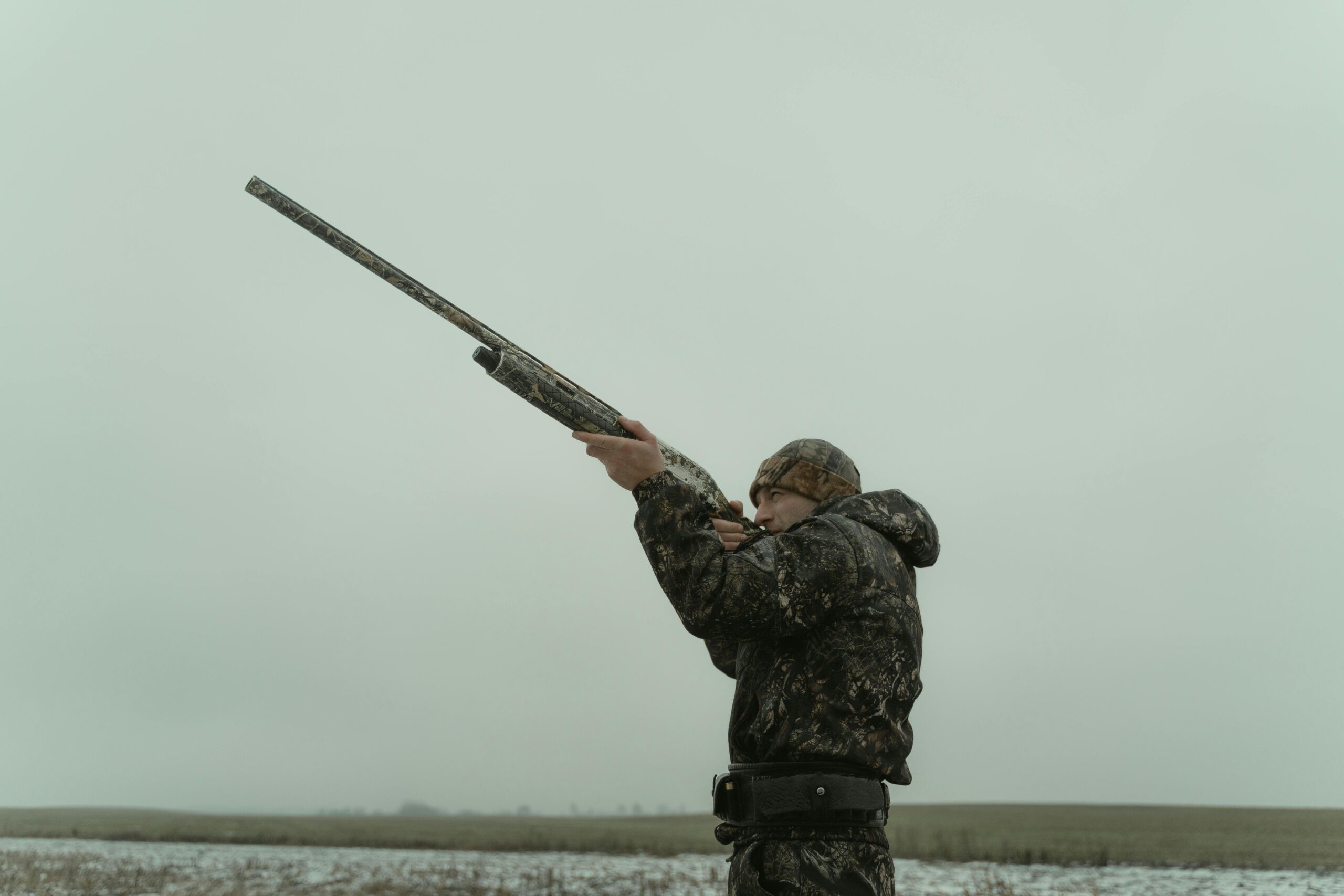For those who are passionate about hunting and the outdoors, becoming a hunting guide is a dream career. It offers the opportunity to work in nature, share your love for hunting with others, and make a living doing something you truly enjoy. However, becoming a hunting guide is not as simple as picking up a rifle and heading out into the woods. It requires a mix of skills, experience, and business know-how. In this comprehensive guide, we’ll walk you through the essential steps to becoming a hunting guide, from gaining experience to legal considerations and developing your own hunting guide business.
What Does a Hunting Guide Do?
Before diving into the specifics of becoming a hunting guide, it’s essential to understand what the role entails. A hunting guide is responsible for leading clients on hunting trips, providing instruction, and ensuring a safe and successful hunt. They often have extensive knowledge of local wildlife, terrain, and hunting techniques and act as both a mentor and protector for their clients.
Key responsibilities of a hunting guide include:
- Scouting and researching hunting areas: A guide must know where to find the best game and understand the local ecosystem.
- Assisting with preparation: This includes helping clients prepare gear, explaining hunting laws, and sometimes assisting with the setup of camps or hunting blinds.
- Ensuring safety: Guides must ensure that all safety protocols are followed during the hunt.
- Providing hunting tips: Experienced guides know how to teach their clients proper hunting techniques, whether they’re tracking, calling, or waiting in a stand.
- Field dressing and processing game: After a successful hunt, a guide may help their clients field dress, process, and transport their game.
Step 1: Gain Experience and Skills
One of the most important prerequisites to becoming a hunting guide is having in-depth experience in hunting. Most hunting guides have spent years learning about hunting, wildlife, and the outdoors before they begin guiding professionally.
1. Start with Hunting Basics
Before considering guiding others, it’s crucial to master the basics of hunting. This includes knowing how to use different types of weapons (rifles, shotguns, bows), understanding the behavior and habitat of various game species, and practicing essential field skills like tracking, calling, and hunting techniques.
2. Gain Field Experience
Hunting is as much about knowledge of the land as it is about the hunt itself. Spend years in the field honing your skills. Learn to track game, identify signs of wildlife, understand different hunting methods, and become comfortable navigating rugged terrain. Additionally, experience in different hunting conditions—such as dense forests, mountain terrains, or wetlands—will broaden your expertise and make you more versatile as a guide.
3. Specialize in a Type of Hunting
While it’s helpful to have experience in various types of hunting (e.g., waterfowl, upland birds, big game), many guides specialize in one area. This could be deer hunting in the Midwest, bear hunting in Alaska, or fly-fishing for trout. Specializing allows you to build your reputation as an expert and develop a deeper understanding of a specific type of game or environment.
Step 2: Obtain Necessary Certifications and Licenses
Depending on where you plan to guide, you may need specific certifications, licenses, and training to operate legally and safely. This varies by state or region, but here are some common requirements:
1. Hunting Guide License
In many states, you will need a hunting guide license or outfitter license to legally guide hunters. The requirements for obtaining this license can vary widely depending on your location, but you will likely need to prove a certain amount of experience, pass a background check, and perhaps even complete an exam on safety and regulations.
2. First Aid and CPR Certification
A first aid and CPR certification is typically required for hunting guides, as you are responsible for your clients’ safety in remote areas. Accidents can happen in the wilderness, and being trained to handle medical emergencies can make you a more effective and trusted guide.
3. Hunter Safety Education
In some states, a hunter safety education course may be required for guides, especially if you plan to work with novice hunters. This course covers the basics of gun safety, ethical hunting practices, and wildlife conservation.
4. Specialty Certifications
If you plan to guide in a specific type of hunting—such as waterfowl or bow hunting—you might need additional certifications or training in that particular area. For example, a bow hunting certification may be necessary if you plan to guide archery hunters.
Step 3: Build Your Reputation and Network
As with any career, reputation plays a crucial role in success. Building a solid reputation as a knowledgeable, reliable, and professional guide will attract clients and help you stand out in a competitive field.
1. Work for Established Outfitters
When you’re starting, working for an established outfitter or guide service can provide valuable experience and networking opportunities. This allows you to learn the ropes of guiding, understand business operations, and gain credibility in the industry.
2. Network with Other Guides and Industry Professionals
Develop relationships with other guides, hunters, and industry professionals. Networking can open doors to new clients, partnerships, and business opportunities. You might also gain insights into new hunting areas and techniques from experienced guides.
3. Get Testimonials and Reviews
Once you’ve started guiding, ask your clients for testimonials and reviews. Positive reviews and word-of-mouth referrals are incredibly powerful in attracting new clients. Many hunting guides also build their client base through social media, where they post photos, tips, and updates to showcase their expertise and attract attention.
Step 4: Start Your Own Guide Business
Once you’ve gained sufficient experience, certifications, and reputation, you may decide to start your own hunting guide business. This step requires both business acumen and knowledge of the hunting industry. Here’s what you need to consider:
1. Business Structure
Decide on the structure of your business (e.g., sole proprietorship, partnership, LLC) and make sure to file the appropriate paperwork with local and state authorities. You’ll also need to get a business license if required.
2. Insurance and Liability Waivers
Hunting is inherently risky, so as a hunting guide, you must protect yourself and your clients. Consider obtaining liability insurance, which can cover you in the event of accidents or injuries during a hunt. Additionally, many guides require clients to sign liability waivers before the hunt, acknowledging the risks involved.
3. Marketing Your Services
To attract clients to your business, you’ll need a solid marketing strategy. Create a website, develop social media profiles, and list your business on hunting guide directories. Networking, testimonials, and online marketing will be key to your success. Attend hunting trade shows, expos, and local events to meet potential clients face-to-face.
4. Manage Logistics
Running a hunting guide business involves more than just guiding hunts. You’ll also need to handle logistics, such as booking clients, arranging transportation, securing permits, and managing supplies (like tents, rifles, ammunition, and food). Efficiently managing these tasks is crucial for providing excellent service and ensuring smooth hunts.
Step 5: Keep Learning and Evolving
The best hunting guides are lifelong learners. Stay updated on new hunting technologies, regulations, and techniques. Learn more about conservation practices and animal behavior to ensure ethical hunting. As you gain more experience, expand your skillset and service offerings, whether it’s guiding for different species, offering specialized hunting packages, or even providing outdoor skills workshops.
Conclusion: Is Becoming a Hunting Guide Right for You?
Becoming a hunting guide is an exciting and rewarding career, but it requires a deep commitment to learning, safety, and professionalism. It’s not just about hunting—it’s about sharing your passion and expertise with others while ensuring their safety and enjoyment. If you’re ready to invest in the time, skills, and certifications required, a career as a hunting guide can offer a fulfilling life in the outdoors. Whether you’re guiding seasoned hunters or teaching newcomers the ropes, the opportunity to make a living doing what you love is within reach.


